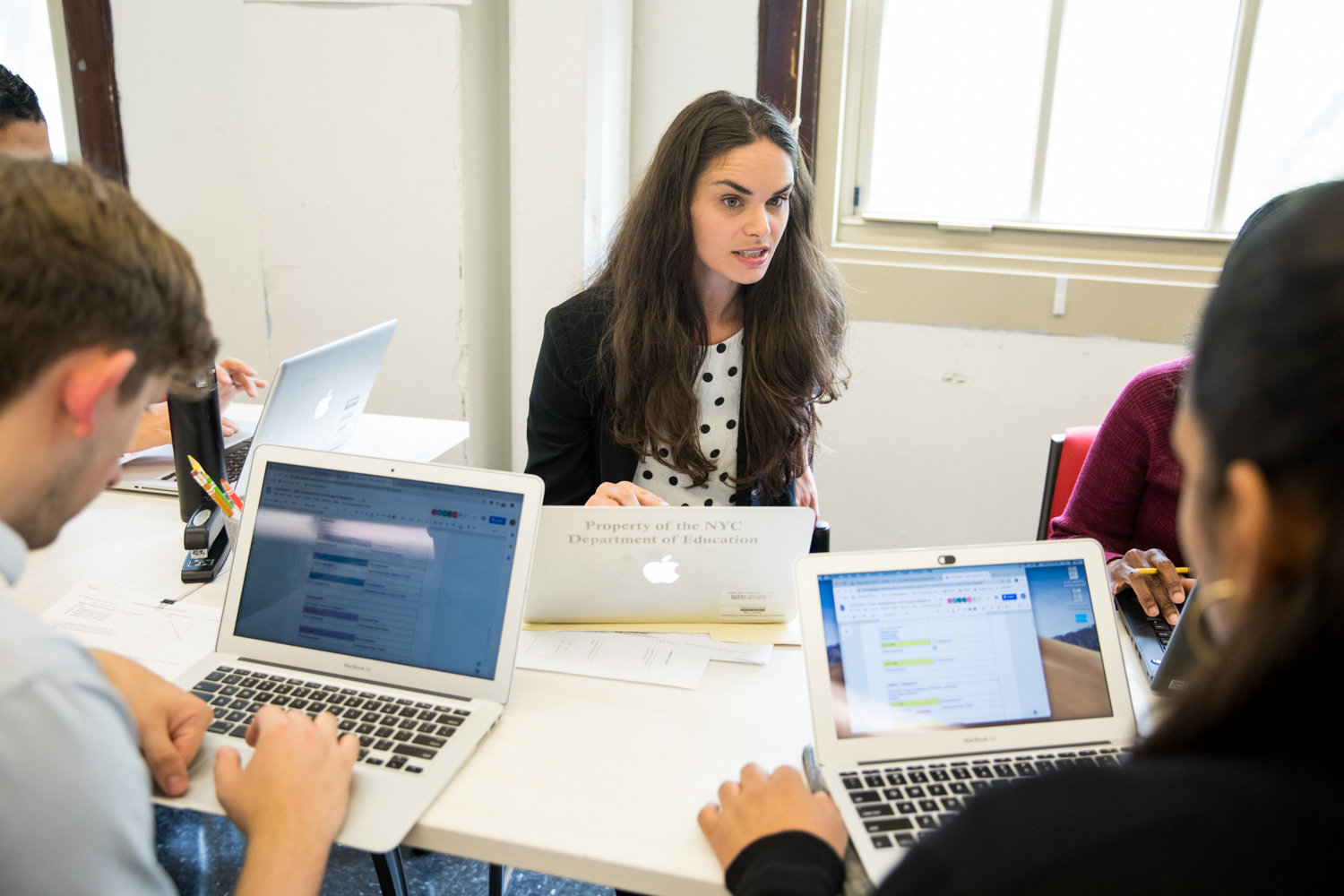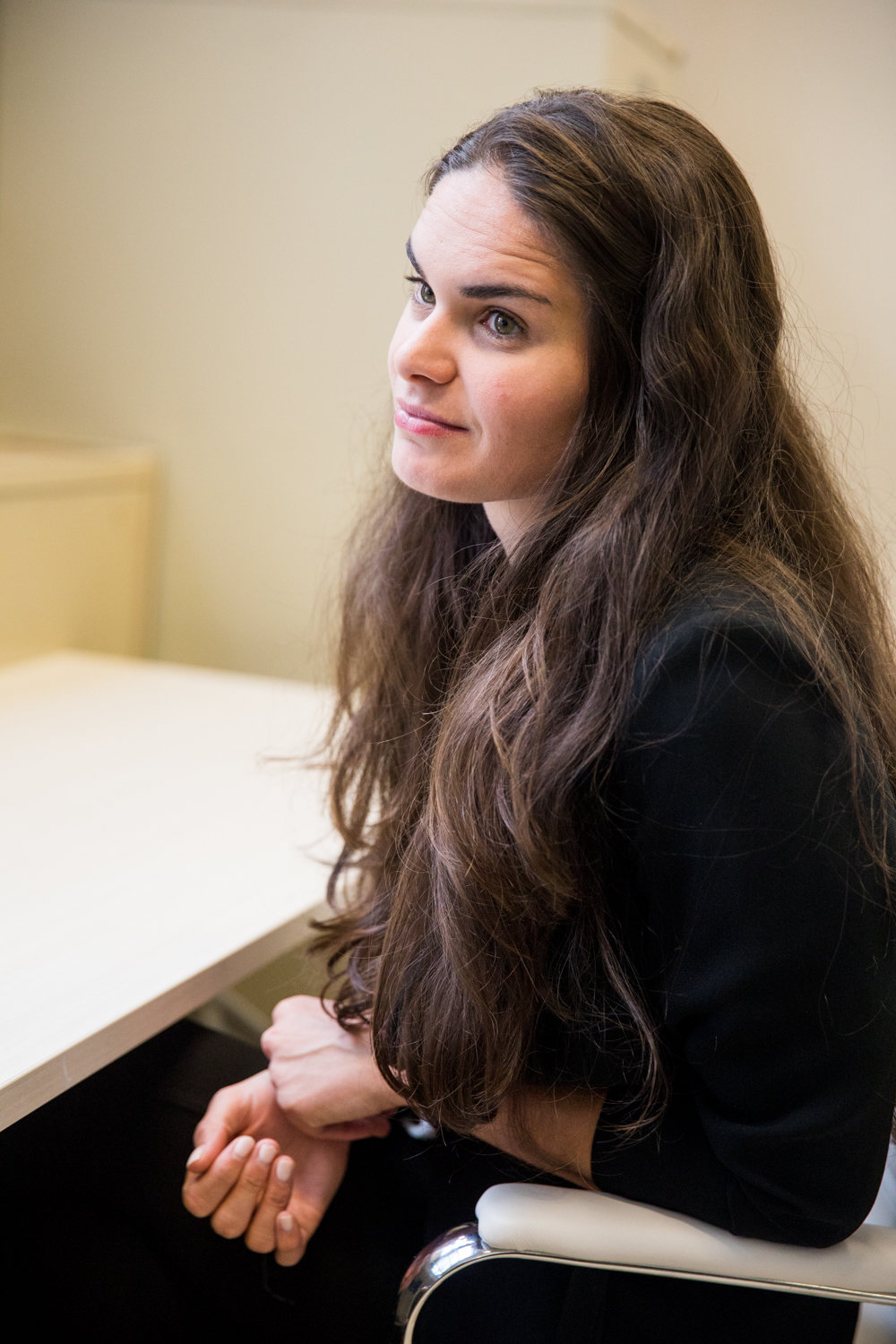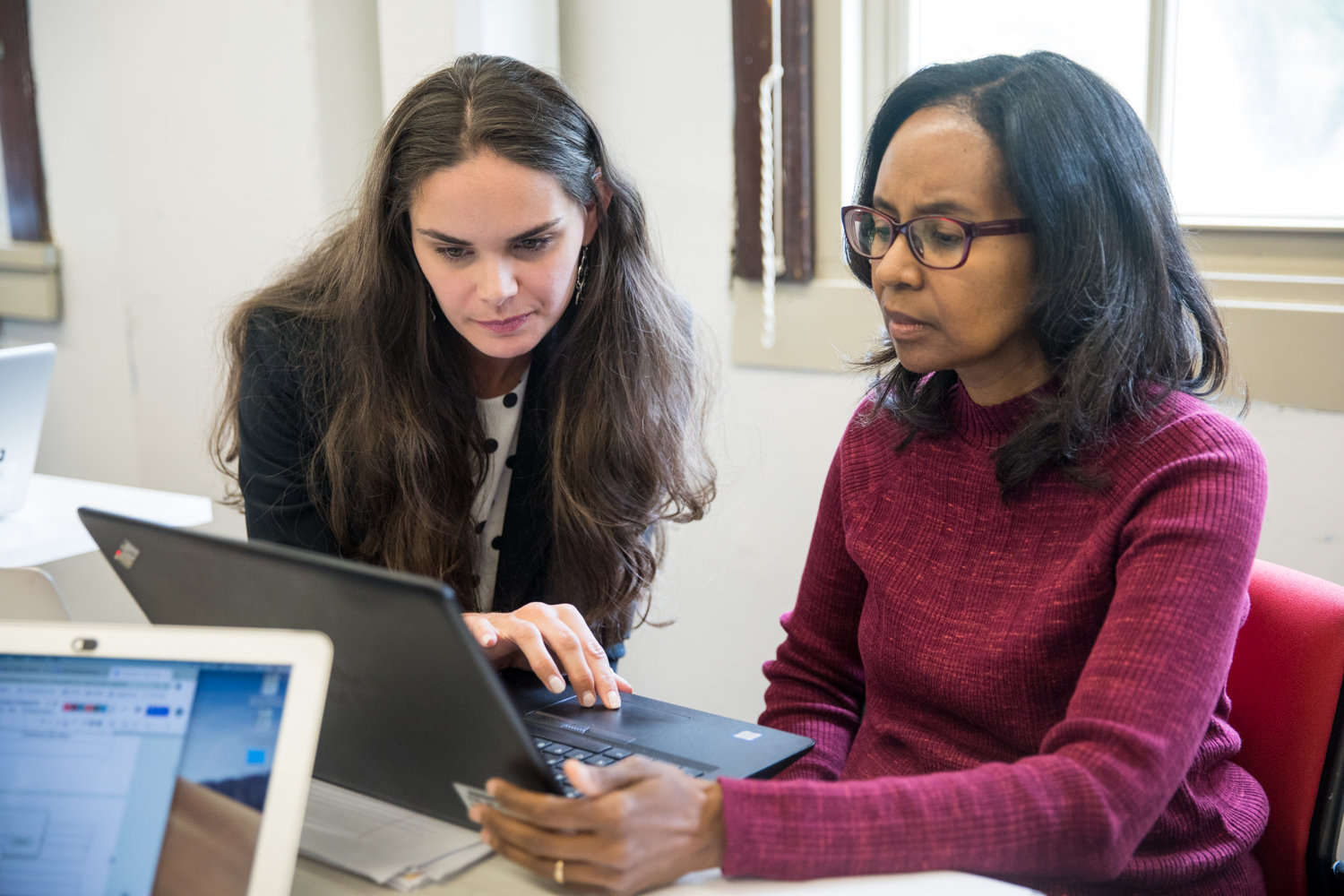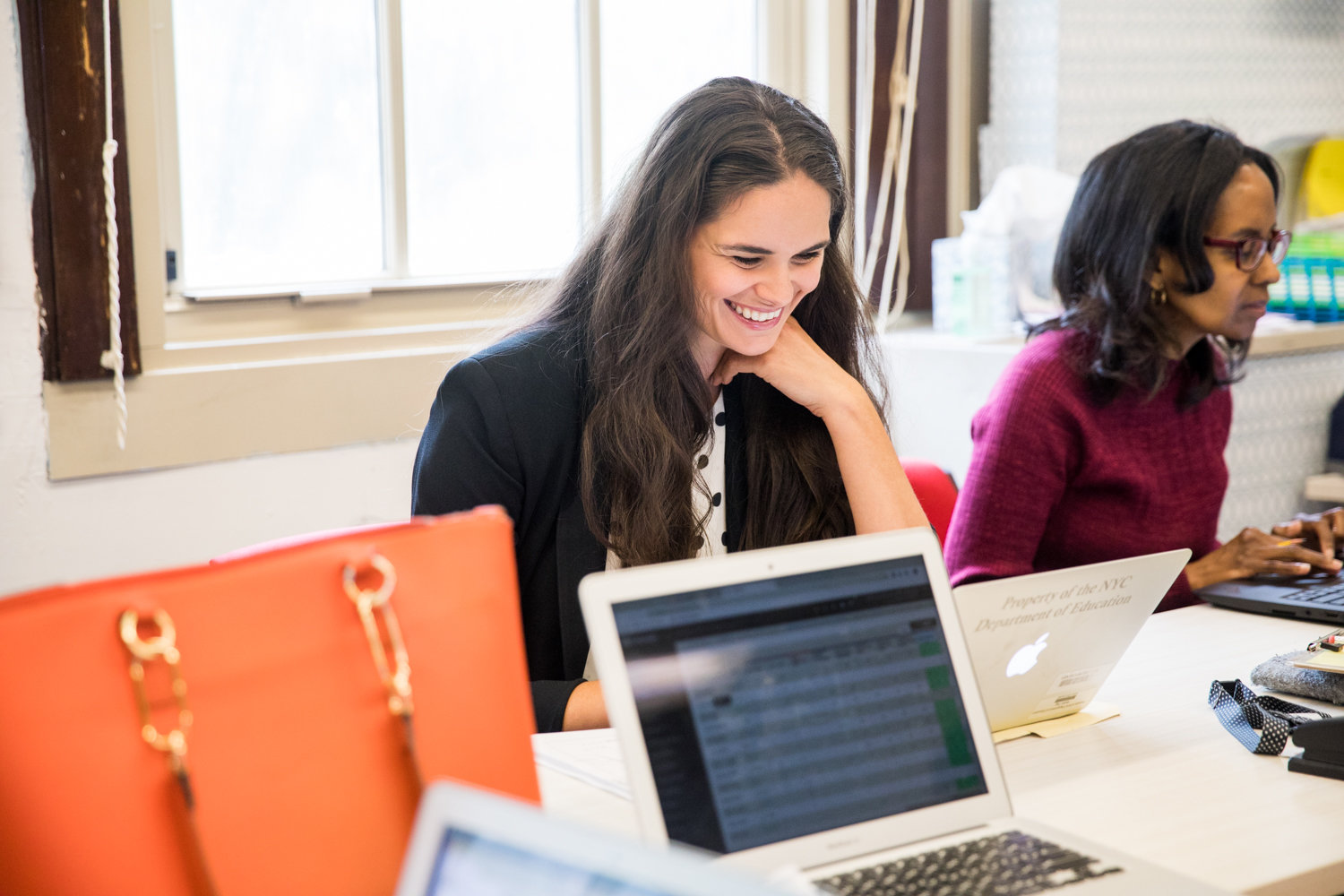Clinton teacher earns support, education through fellowship
It was like getting into college all over again.
Jamie DeMartino had just been accepted as a fellow with Math for America, an organization that brings together math and science teachers citywide to provide support and opportunities to learn from and with other teachers.
After more than a decade as a teacher, DeMartino wanted a new way to continue learning in her field. When she applied for the Math for America fellowship, DeMartino was looking for the perfect fit.
The program does more than just educate teachers, though, said Math for America president John Ewing. It makes them feel respected in their career, and feel like a part of something bigger than themselves.
“To model what teaching should be like,” Ewing said. “It’s not just standing in front of a class, it’s somehow a richer experience. You can feel like a mathematician or a scientist. Nobody thinks that they’re only a teacher.”
One of the hardest choices DeMartino has made so far has simply been choosing workshops to take part in. Those workshops range from problem solving in mathematics to a study on early organic chemists.
“I enrolled in one this fall about algebra in particular, teaching algebra to eighth and ninth graders,” she said. “I’m teaching ninth grade algebra this year. One of the most critical math classes is Algebra I. It’s a foundational class.”
Ninth-grade algebra lays the groundwork for math and science in the rest of their school careers, so getting it right is critical, she said.
DeMartino likes the challenge of teaching math, as her classes change every year, keeping her on her toes and always allowing her to learn.
Clinton principal Pierre Orbe, a former teacher who himself was a Math for America fellow, says the program provides extra support that schools can’t always receive.
“At schools, we always provide support, but it may not meet a teacher’s individual goals,” Orbe said. “Math for America really excels in meeting those needs. They define different areas of needs, and create a smaller community around a specific topic.”
Orbe said that meeting fellow like-minded professionals, and discussing their teaching, students, and goals, was “very positive” when he was part of the program, and that those conversations can help teachers identify problems in their own classrooms.
The fellowship also provides opportunities for math and science teachers to meet each other. While some of that might be a chance to learn something new, it’s also a way for each of them to trade notes, and commiserate on the trials and tribulations inherent to their profession.
Ewing, the fellowship leader, shared a story of another fellow who had graduated from MIT and taught math in the Bronx. Sitting at Thanksgiving dinner, a family member asked when she was getting a “real job.”
“She was someone who was extraordinary at what she did,” Ewing said. “She was doing a magnificent job. And she had no real respect from her family. Our society hasn’t decided that teachers are like doctors or engineers or even lawyers. It’s not seen as a respectable job.”
Teaching can have a high turnover rate. The low pay and long hours are demanding, especially in an expensive city like New York.
“Teaching can be sort of a lonely endeavor,” DeMartino said. “You look for opportunities to engage. I had this opportunity to be part of this particular group of motivated, strong math and science teachers, and it was a great addition to my support system.”
DeMartino is mostly excited to learn new ways to teach subject matter that otherwise has become a bit old hat.
“Math is not especially more difficult” to get students engaged in, she said. “They like the immediate feedback, to prove they’re right or wrong. After meeting with MfA, I want to push the thinking of my students even further.”
What DeMartino wants is for her classroom to be a vehicle for the kids walking in, ready to learn.
“It’s all about helping our students learn as much as they can and grow as much as they can,” DeMartino said. “That comes from us.”













